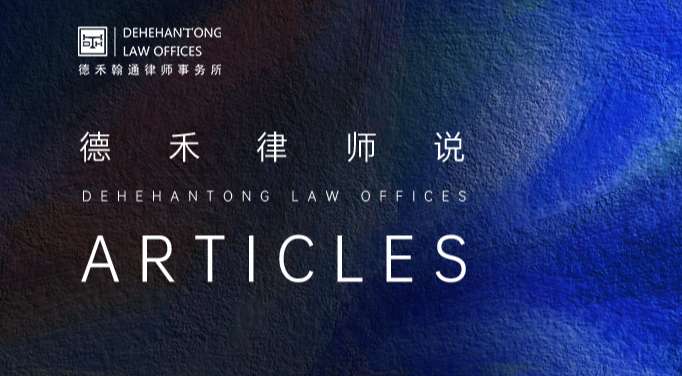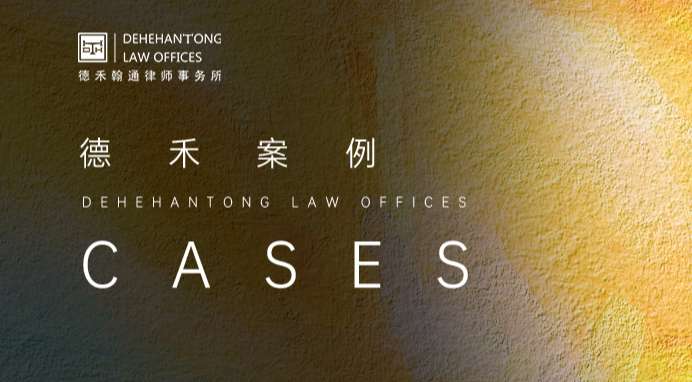A Brief Analysis of the Capital Contribution Issues of Companies in California
In our previous article, we introduced the common types of American companies. Next, we will discuss how to properly contribute capital to a Corporation under California law after its registration.
01 Currency and other forms of capital contribution
Section 409 a of the California Corporation Code "CCC" stipulates that cash, services, services already provided to the company (services to be provided in the future do not constitute valid consideration), and the release of the company's debts (i.e., debt-to-equity swaps), Or other tangible or intangible assets provided to the company (including debts or intellectual property rights, etc.) can all be used as capital contributions (i.e., the consideration for shares).
For Promissory Notes issued by shareholders, in principle, they cannot be used as consideration for shares. Unless there is sufficient guarantee (the shares to be acquired themselves cannot serve as guarantee here); Or, in the case of internal employee incentives, internal employees are allowed to pay the consideration for stocks in the form of installment payments, promissory notes or salary deductions, etc.
Although California company law allows for more open forms of capital contribution, companies can also limit the forms of capital contribution they can accept based on their needs. By default, the board of directors has the right to make decisions and modifications from time to time regarding the form of capital contribution received by the company. However, if the company's articles of association clearly grant this power to shareholders, it shall be resolved by the shareholders' meeting.
02 Determination of the value of non-monetary contribution forms
If non-cash contributions are involved, the value of the contributed assets needs to be determined. Section 409 e of the California Company Law stipulates that the board of directors shall determine the fair value of non-monetary capital contributions by resolution, and this authority is an exclusive right of the board of directors and cannot be exercised by the shareholders' meeting on its behalf.
The California Company law does not explicitly stipulate how the fair value of non-monetary contributions should be determined. In practice, generally, reasonable market standards can be referred to. When it is difficult to assess, third-party institutions can also be introduced to assist the board of directors in making decisions.
Unless there is fraud, the board's judgment on the value of non-monetary contributions is final. The decisions made by directors in this process are also correspondingly protected by the business Judgment rule.
03 Legal responsibilities and corresponding litigation procedures for shareholders' insufficient capital contribution
Section 410 of the California Company Law stipulates that shareholders are obligated to pay the full consideration for their shares to the company. The consideration shall in principle be paid to the company before or at the same time as the issuance of the shares, unless the shares are instalment consideration shares specifically issued under section 409 d of the California Corporation Law (partly paid).
If a shareholder fails to contribute capital to the company as agreed, the company has the right to demand that the shareholder pay the full equity consideration to it. At the same time, the directors of the company, based on their fiduciary duties to the company, should also take legal actions on behalf of the company within a reasonable time.
For the creditors of a company, according to Section 414 of the California Company Law, no creditor may directly Sue a shareholder and demand that he or she assume the liability for capital contribution to the company for the outstanding shares, unless one of the following two circumstances is met:
1. The creditor has obtained a final judgment against the company, and at the time of enforcing the judgment, the company is unable to repay all or part of its debts.
2. Or the execution of the procedure would be meaningless (for example, the company has gone bankrupt, liquidated, dissolved, etc., and formal execution is no longer possible). The supplementary capital contributions made by shareholders are usually paid directly to the company (rather than directly to the creditors) as part of the shareholders' capital contributions. In special circumstances, if the company has gone bankrupt or is no longer capable of operating, the court may, in accordance with Section 414 b of the California Company Law, appoint a receiver to receive the funds and make corresponding distributions in accordance with the law.
In practice, unlike in China, the capital contribution situation of shareholders in California companies is not publicly accessible information. Creditors usually need to go through the evidence disclosure procedure in litigation to obtain the company's articles of association and payment records, etc., to determine whether individual shareholders have not fully paid their capital contributions.















